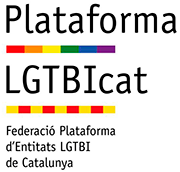
Passage of Prop.8 throws thousands of same-sex unions into doubt.
- Proposition 8: Gay marriage ban Yes 52.5% No 47.5% Precincts reporting: ~100.0%
UPDATE: Voters approve Proposition 8 banning same-sex marriages. With more than 95% of the vote counted, the measure leads 52.1% to 47.9%.
A measure to once again ban gay marriage in California led Tuesday, throwing into doubt the unions of an estimated 18,000 same-sex couples who wed during the last 4 1/2 months.
As the measure, the most divisive and emotionally fraught on the state ballot this year, took a lead in early returns, supporters gathered at a hotel ballroom in Sacramento and cheered.
.elexmore We caused Californians to rethink this issue," Proposition 8 strategist Jeff Flint said.
Early in the campaign, he noted, polls showed the measure trailing by 17 points.
"I think the voters were thinking, well, if it makes them happy, why shouldn't we let gay couples get married. And I think we made them realize that there are broader implications to society and particularly the children when you make that fundamental change that's at the core of how society is organized, which is marriage," he said.
But in San Francisco at the packed headquarters of the No on 8 campaign party in the Westin St. Francis Hotel, supporters of same-sex marriage refused to despair, saying that they were holding out hope for victory.
"You decided to live your life out loud. You fell in love and you said 'I do.' Tonight, we await a verdict," San Francisco Mayor Gavin Newsom said, speaking to a roaring crowd. "I'm crossing my fingers."
Elsewhere in the country, two other gay marriage bans, in Florida and Arizona, were well ahead. In both states, laws already defined marriage as a heterosexual institution. But backers pushed to amend the state constitutions, saying that doing so would protect the institution from legal challenges.
Proposition 8 was the most expensive proposition on any ballot in the nation this year, with more than $74 million spent by both sides.
The measure's most fervent proponents believed that nothing less than the future of traditional families was at stake, while opponents believed that they were fighting for the fundamental right of gay people to be treated equally under the law.
"This has been a moral battle," said Ellen Smedley, 34, a member of the Mormon Church and a mother of five who worked on the campaign. "We aren't trying to change anything that homosexual couples believe or want -- it doesn't change anything that they're allowed to do already. It's defining marriage. . . . Marriage is a man and a woman establishing a family unit."
On the other side were people like John Lewis, 50, and Stuart Gaffney, 46, who were married in June. They were at the San Francisco party holding a little sign in the shape of pink heart that said, "John and Stuart 21 years." They spent the day campaigning against Proposition 8 with family members across the Bay Area.
"Our relationship, our marriage, after 21 years together has been put up for a popular vote," Lewis said. "We have done what anyone would do in this situation: stand up for our family."
The battle was closely watched across the nation because California is considered a harbinger of cultural change and because this is the first time voters have weighed in on gay marriage in a state where it was legal.
Campaign contributions came from every state in the nation in opposition to the measure and every state but Vermont to its supporters.
And as far away as Washington, D.C., gay rights organizations hosted gatherings Tuesday night to watch voting results on Proposition 8.
"I am nervous," Human Rights Campaign President Joe Solmonese said from a brewery in the nation's capital. "This is the biggest civil rights struggle for our movement in decades. . . . The outcome weighs incredibly heavily on the minds of every single person in the room."




